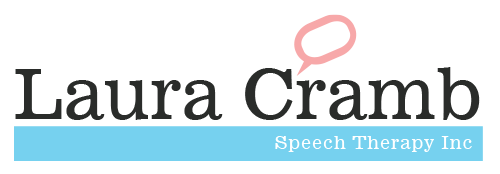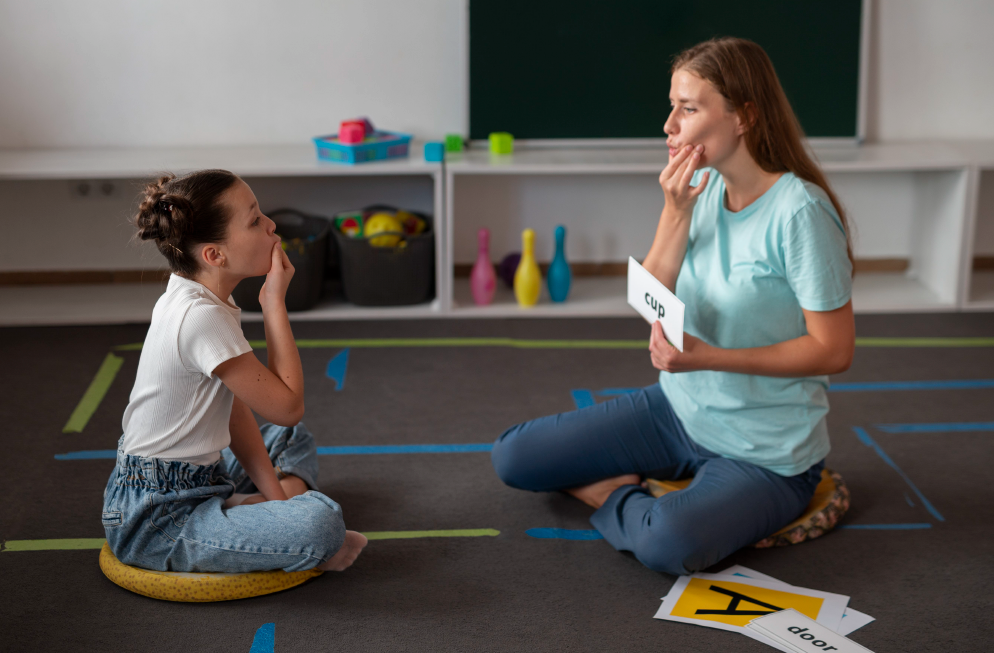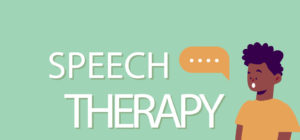Whether your child is struggling with articulation, fluency, stuttering, or any other speech difficulty?
Speech therapy is a scientifically proven and straightforward solution. However, just as there are many types of speech and language disorders, speech therapy also comes in many types.
To help you understand the four most common types of speech therapy and how a licensed speech-language pathologist (SLP) can help your child, we’re going to discuss each type below.
1. Speech Therapy for Stuttering
Many parents don’t realize this, but stuttering is incredibly frustrating for kids. As they fail to control the unintentional repetition of words, sounds, and syllables, kids start feeling helpless and sometimes blame themselves.
The good news is that there’s a lot an SLP can do to help your child. To start with, the SLP will ask you to describe the stuttering symptoms of your child. Then based on your description and their own evaluation, the SLP will let you know if speech therapy is even needed in the first. That’s because most kids are able to fully recover from stuttering with time.
However, if the SLP feels the need for speech therapy, they will then prepare a plan to control your child’s stuttering. This usually involves behavioral modification techniques like breath monitoring and speaking in a slow and controlled manner.
As your child gets better at controlling their rate of speech, they will get comfortable speaking slowly and, as a result, stutter less often. That’s because fast speech often makes stuttering worse.
Stuttering is one of the most common speech disorders, with up to 10% of all kids struggling with it. As a result, most SLPs have a tremendous amount of experience in helping kids with this condition.
2. Speech Therapy for Apraxia
With apraxia of speech, kids know what they want to say but struggle to make the right sounds or say the right syllables. This is usually limited to certain syllables and sounds only.
Whereas kids with stuttering usually outgrow it, apraxia of speech does not go away on its own. Many parents make the mistake of thinking that this disorder is temporary because they’ve seen an adult recover from it. The truth, however, is that apraxia in children is not the same as in adults.
In short, talking to adults or spending days interacting with other children cannot help kids with apraxia improve their speech abilities. The only solution is speech therapy by a licensed SLP.
An SLP will start by evaluating your child’s symptoms and the severity of their condition. This is generally achieved by performing two separate tests. First, the therapist may check for any muscle weaknesses in the jaw, lip, and tongue in what’s called an oral-motor assessment.
Once the physical test is done, the SLP will listen to your child’s speech to see if the stresses and pauses are placed correctly. There may be other tests, but these two are the most common.
Depending on how challenging the apraxia of speech is for your child, the SLP will prepare a tailored plan of exercises and activities to help your child improve their speech ability.
3. Speech Therapy for Aphasia
Unlike other disorders on this list, aphasia is exclusively caused by a brain injury. In fact, it’s not even a condition but rather a symptom of brain damage.
For kids with aphasia, it’s common to have trouble speaking as they have a hard time finding the right words and end up saying strange or inappropriate things in a conversation.
Fortunately, aphasia in children isn’t permanent and improves over time. Most studies have shown that as the brain tissue repairs and new connections are formed, kids with aphasia get better with their language and communication skills.
 Depending on the severity of the injury and the area that was damaged, some kids might even recover fully within just a few months. The only way to know for sure is by getting a diagnosis from an SLP.
The diagnosis involves an evaluation of your child’s ability to understand and express thoughts. The speech therapist may also check for your child’s swallowing abilities, as those could also be affected by aphasia.
Following the diagnosis, the SLP will prepare a drill to target the specific areas your child struggles in and may even recommend group therapy. You can also practice the drills at home with your child.
4. Speech Therapy For Dysphagia
When most parents think of disorders affecting their child’s speech, swallowing difficulties are usually the last to come to mind. The truth, however, is quite the opposite.
As kids with swallowing problems struggle to maintain fine control over their mouth and tongue, their speech can come out differently than expected. On top of that, swallowing problems are typically caused by nerve damage or problems in the head and neck area, which can further complicate their struggles with speech.
A speech therapist can help your child improve their speech skills by recommending swallowing exercises to strengthen their mouth, increase the range of tongue motion, and improve chewing habits. All of these combined will help your child swallow food and liquids more effectively, leading to a significant improvement in their speech.
The key is to work with your child and help them practice those drills at home.




